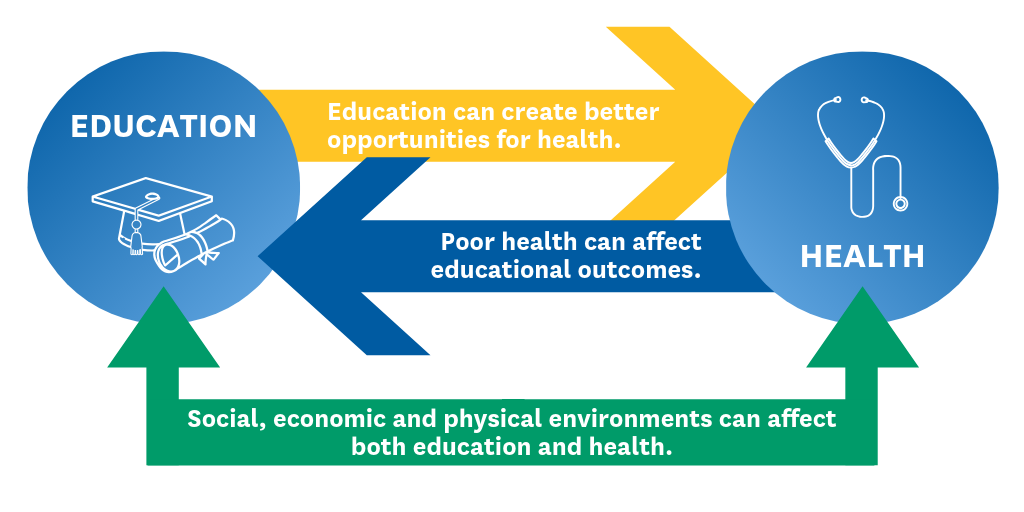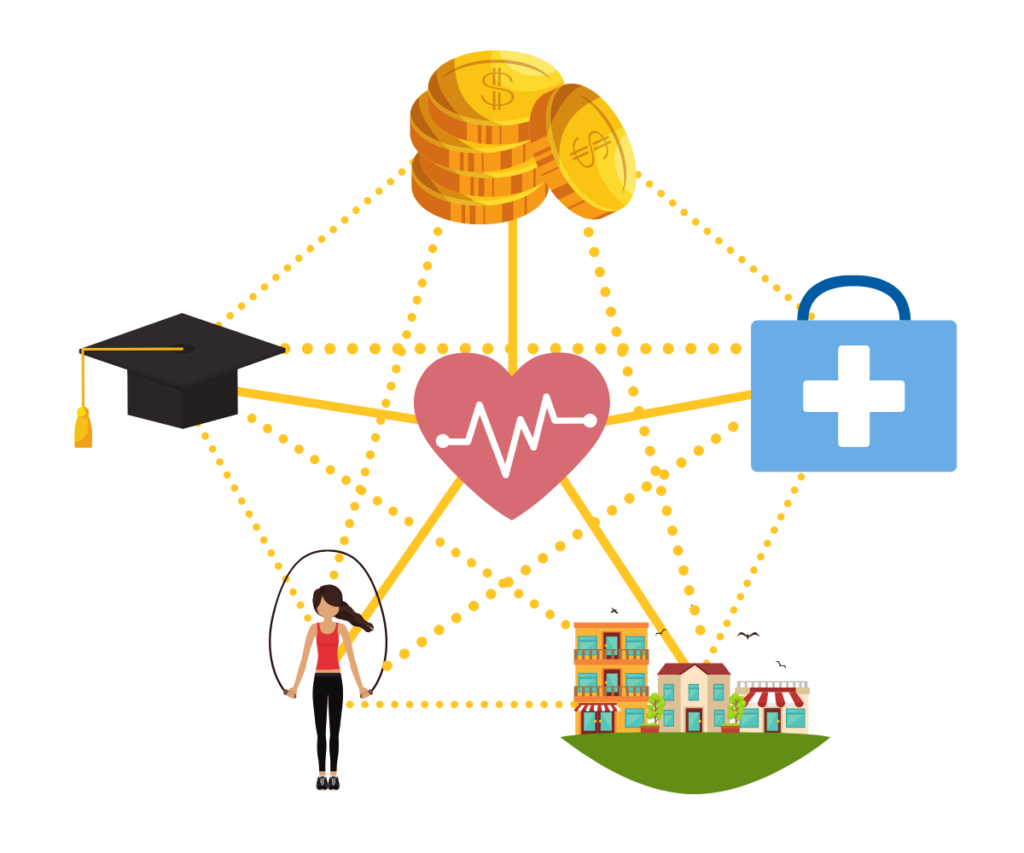Lam Quynh Vo, Outreach and Communications Fellow
We all recognize that a good education is important for a good career and stable life. However, less recognized is the impact of education on health outcomes. Americans with more education live longer, healthier lives than those with fewer years of schooling—and this has never been more true than today. Did you know that in the last few decades, the life expectancy gap between the most and least educated Americans has been widening? Or that Americans with less education are now, more than ever, more likely to have serious health conditions such as diabetes and heart disease? In the health equity sphere, education is classified as one of the so-called “social determinants of health”—conditions in which people are born, grow, live, work and age that shape health outcomes. This blog will give you a small glimpse of the multifaceted and interconnected ways in which education and health impact each other.

1) Education can create better opportunities to health
In today’s job market, a highly educated applicant is more likely to be employed in a position that provides health-promoting benefits such as health insurance, paid leave and retirement. People with less education, on the other hand, are more likely to work in low-wage or higher-risk occupations with fewer benefits. High educational attainment tends to lead to higher income as well, which in turn has a positive effect on health: high-income families have time to exercise more regularly, and can afford to pay for healthier food, health care and transportation to health services. Given the high cost of health care, low-income families are often forced to choose between paying for health insurance and care, groceries, or rent. And speaking of rent, low-income individuals face higher risk of poor housing and housing insecurity, which is often connected to worse health outcomes. Through income, education is connected to many other social determinants as well, such as the likelihood of living in a low-income neighborhood that lacks the resources to obtain and maintain good health.
Perhaps somewhat surprisingly, higher education level is also connected to certain social and psychological benefits that could lead to better health. People with more education and higher income are more likely to be spared from the stresses that frequently arise from social and economic hardship. Stress-inducing events such as abrupt life changes, trauma and discrimination can have cumulative negative effects on health, and might make individuals more sensitive to other stressors. Highly educated adults are also more likely to have larger social networks, which in turn brings access to various financial, emotional and psychological resources that may reduce hardship and stress, and provide coping mechanisms that could protect from negative health effects. Education can also contribute to better health knowledge and greater self-advocacy, and is more likely to propel healthier lifestyle choices.

2) Poor health can affect educational outcomes
Of course, the relationship between education and health is not one-sided; health affects education as well. Poor health not only is more likely to cause lower educational attainment, but it can also cause educational setbacks and interfere with schooling. Health conditions, disabilities and unhealthy behaviors can all have a negative effect on education outcomes. For example, children with chronic illnesses may experience recurrent absences and difficulty concentrating in class, which directly affect their academic performance.
3) “Upstream” factors can affect both education and health
The link between educational attainment and higher income leading to better health doesn’t fully explain the interconnectedness of education and health. Education is surely a marker, but social, economic and physical environments might impact health outcomes before a child even reaches school age. Children who grow up in low-income and/or higher stress environments or neighborhoods face a double burden: their living conditions might disturb and disrupt their education, and these “adverse childhood experiences” can cause lasting biological effects and trigger unhealthy or risky health behaviors such as smoking and drinking. Early living conditions and childhood experiences shape health trajectories for a lifetime, contributing to the link between “upstream” factors, education, and health.

Health is more than just health care—it is clear that education, among many other social determinants of health, matters to health outcomes. The association between education and health has upstream causes, such as the economic and social conditions young children experience before reaching school age, the skills and networks they build as they mature, and the jobs and resources they can access later in life. In order to truly ensure that all Americans can lead healthy lives, we must tackle structural inequities that pose disproportionate barriers to education, and draft and support policies that will not only focus on health care, but also address upstream causes of health. In fact, Coloradans will get a chance to vote on such a policy this November—Proposition CC is a ballot measure that would eliminate the state’s revenue caps under TABOR, and allow more investment in public services such as education. Want to read more about Coloradan fiscal policy and what Prop CC could mean to Colorado? Stay tuned for our next post.
